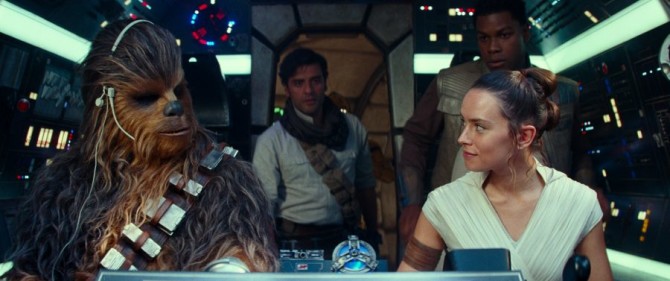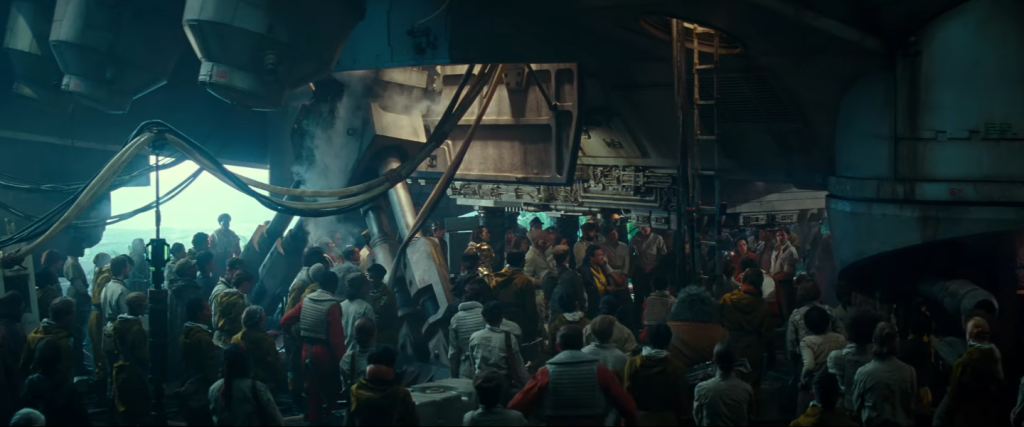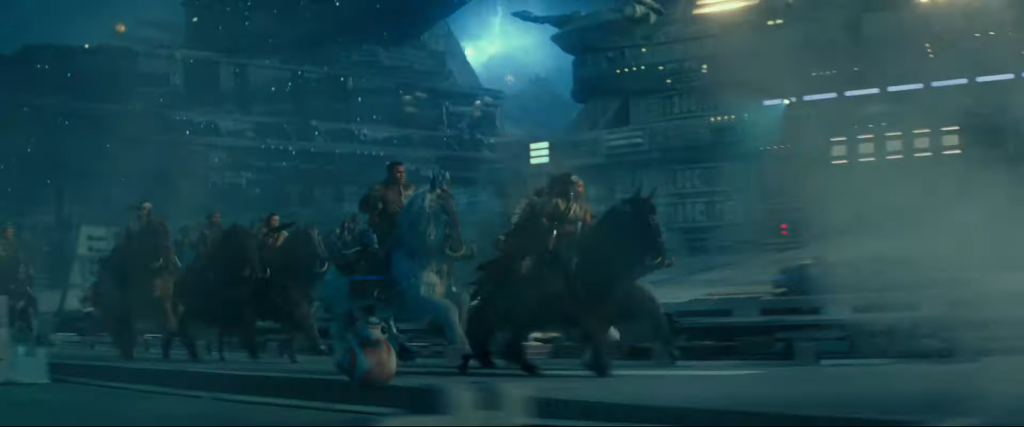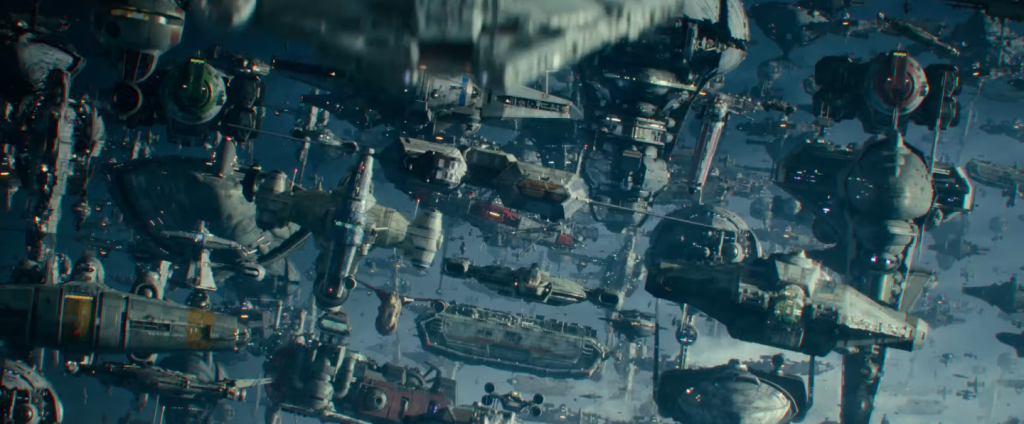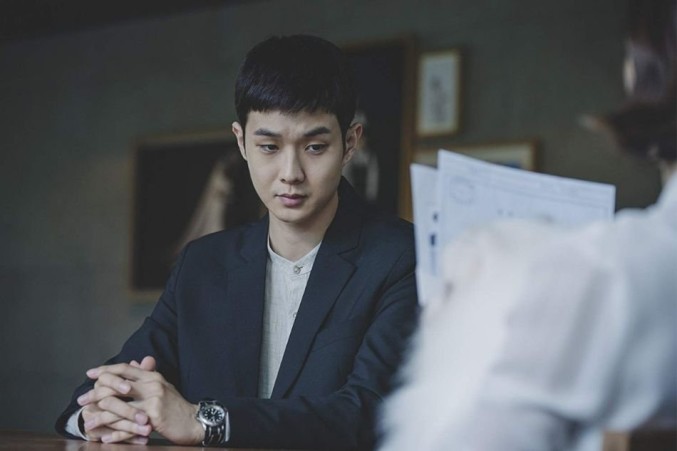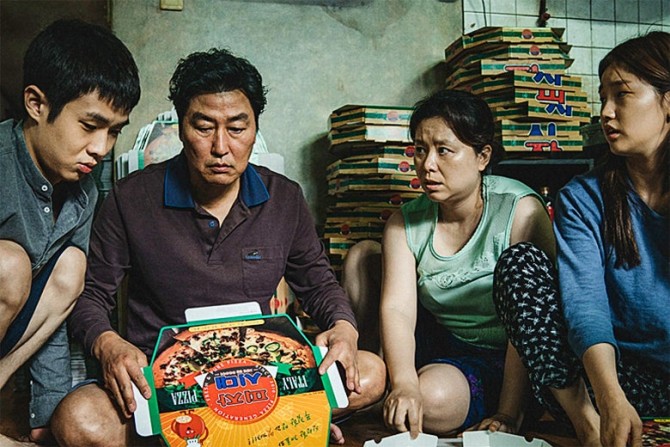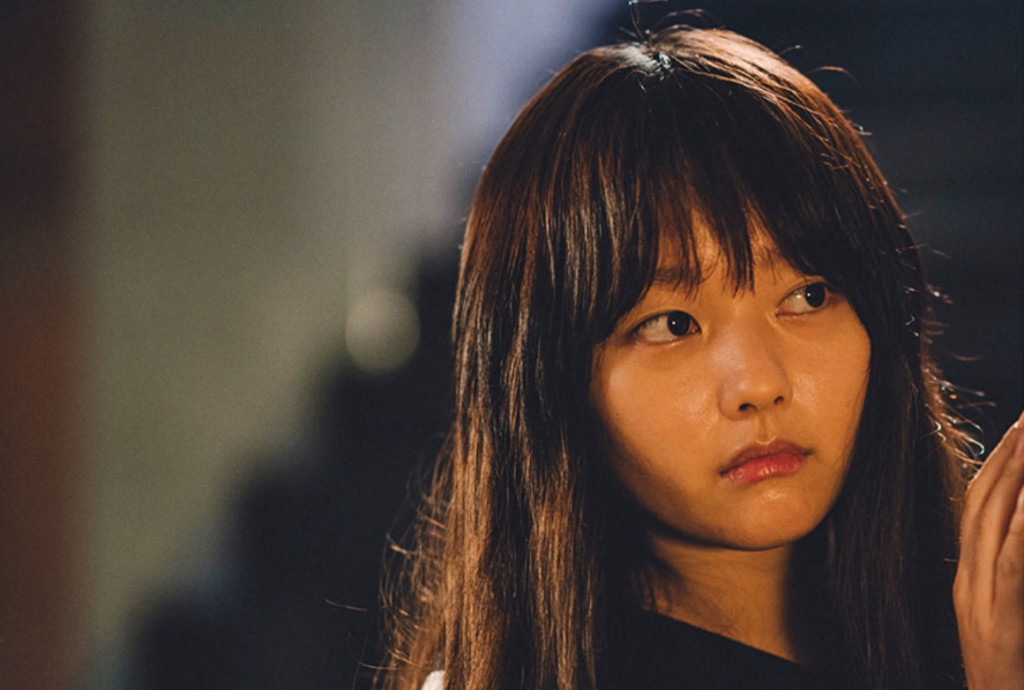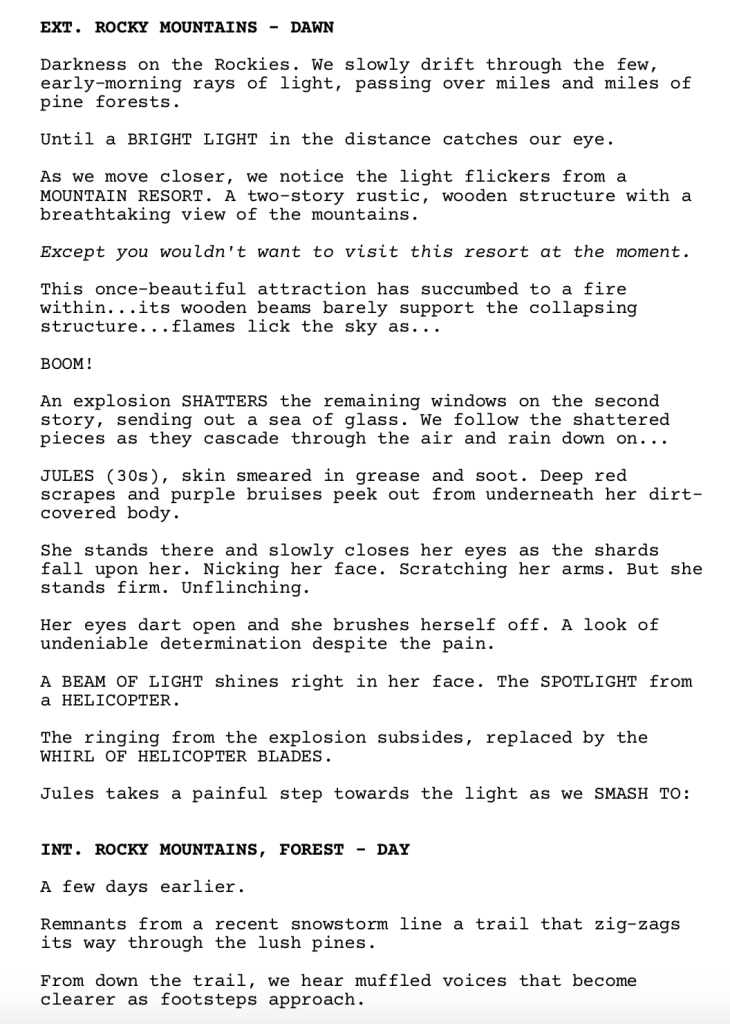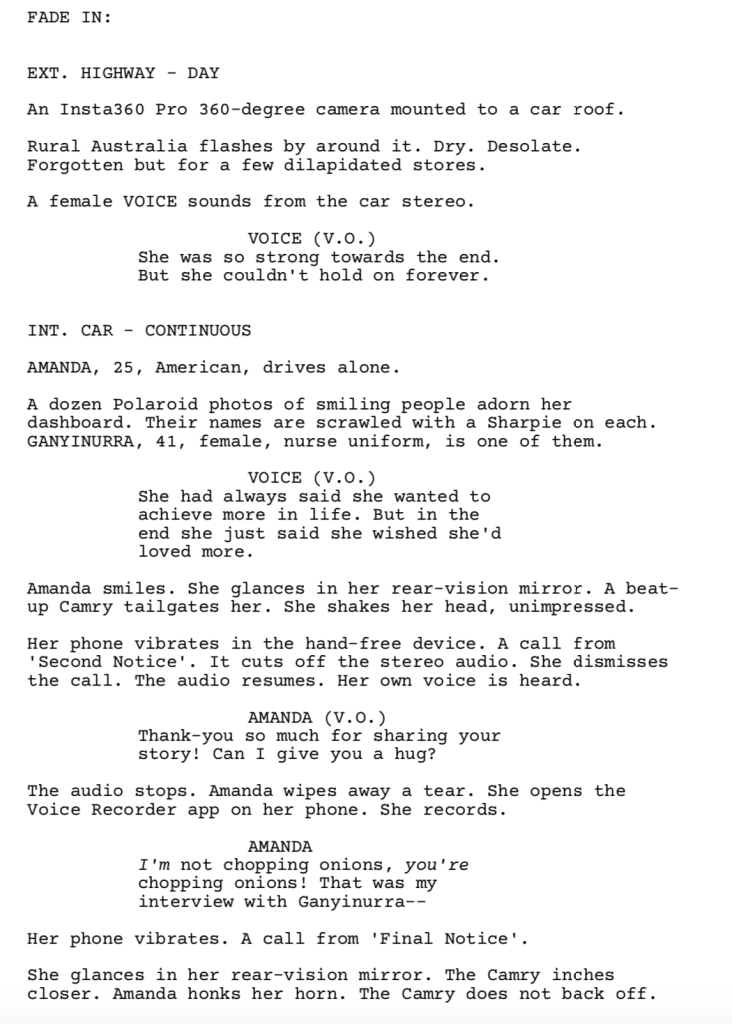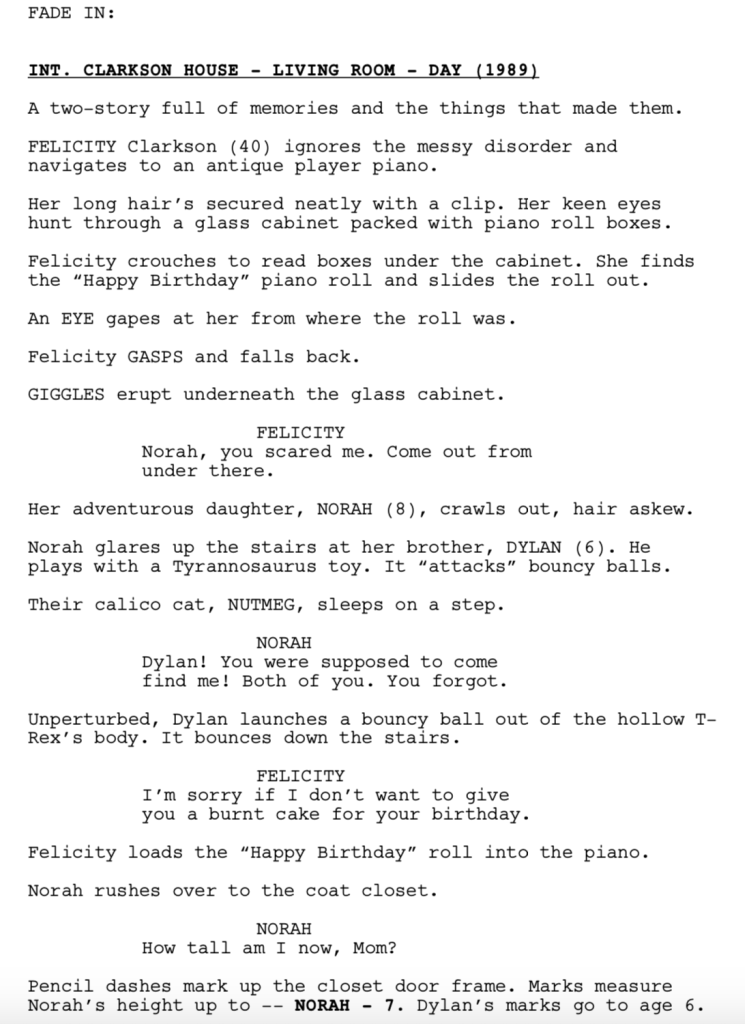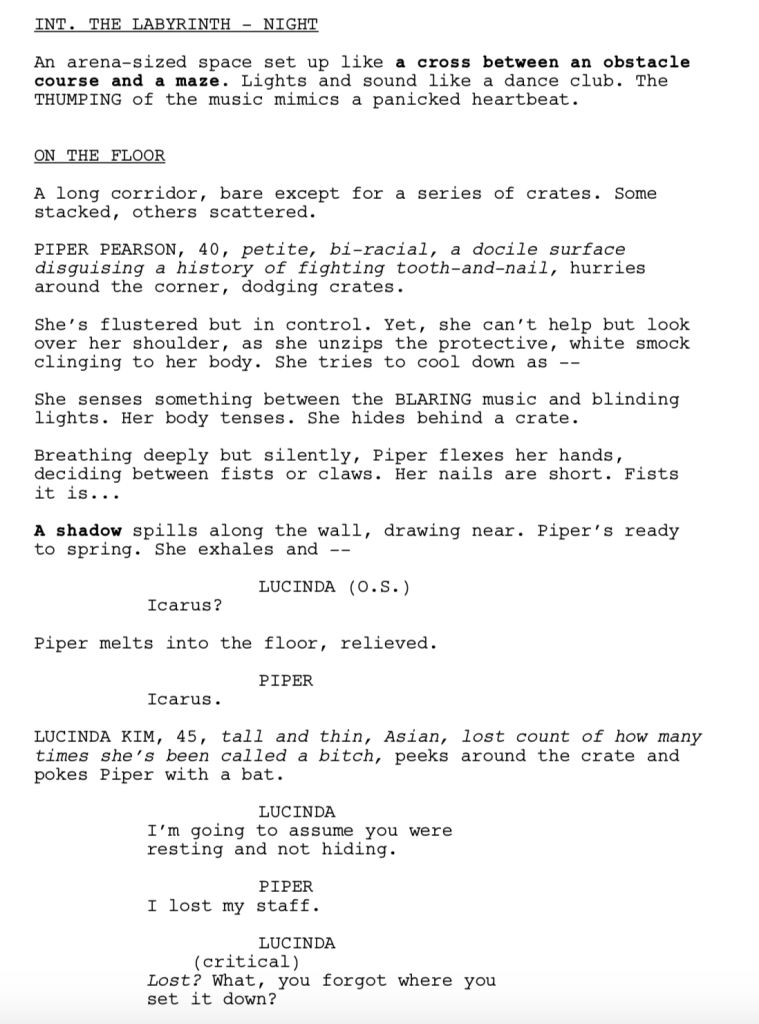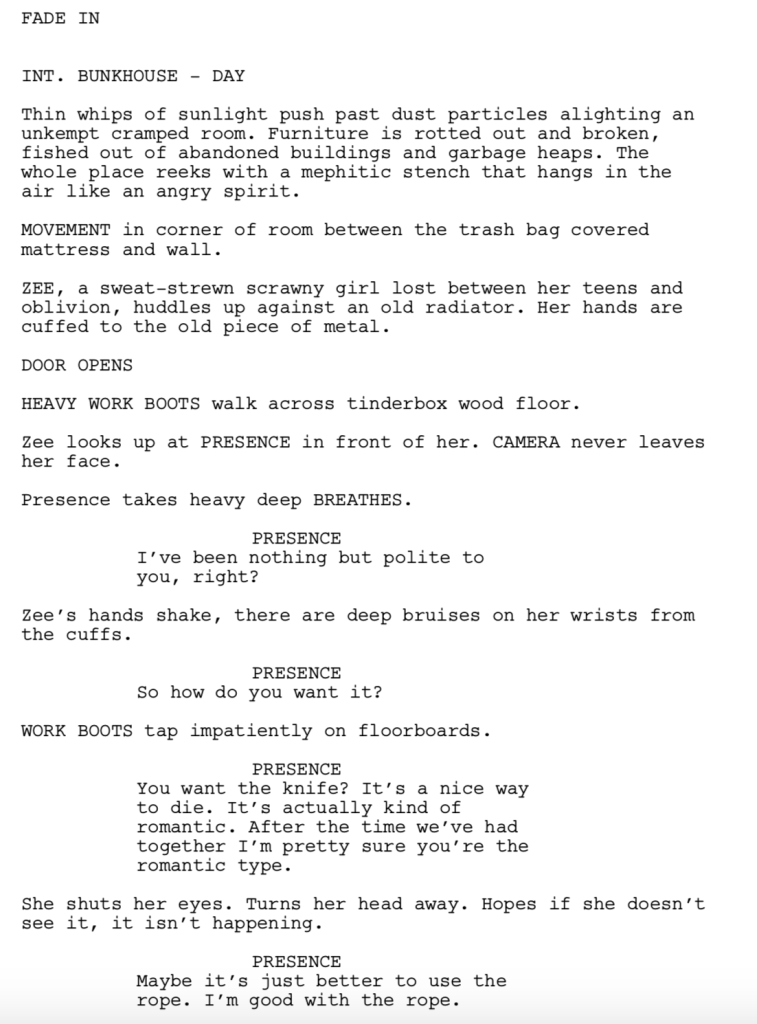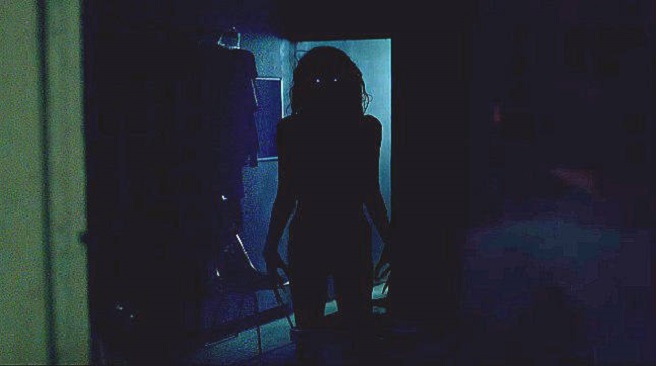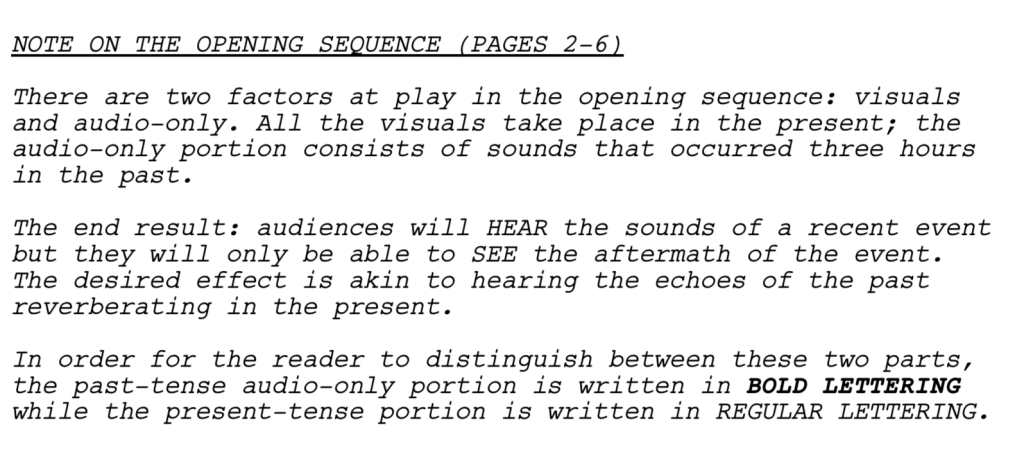I’ve said it before and I’ll say it again.
This is the single most important Star Wars trailer of all time.
The Star Wars brand was destroyed in the hands of Rian Johnson. Everyone knows it now. Only a few Twitter users on an island try to make the case that it “wasn’t that bad.” Ever since The Last Jedi, the franchise has been stumbling. Solo bombed. An entire trilogy was canceled (Rian Johnson’s). Another one is close to being canceled (Benioff and Weiss). You’ve got Kevin Feige throwing around Star Wars ideas now, as if they’re so desperate for good press they’ll force their way-too-busy Marvel president to make a flick.
And that’s the thing. This trailer doesn’t just have to end the 9 film nerfology. It has to whet the appetite for Star Wars films moving forward. As much as we’ve heard Star Wars is eager to move away from the Skywalker Saga, the truth is, it’s still its best moneymaker. After this, you have to create all new iconic characters that people will want to watch through multiple movies. And if anybody thinks that’s easy, they’ve never written a screenplay before.
To achieve this feat, the Episode 9 trailer needed to be one of the most memorable trailers of all time. That’s not hyperbole. They’re hoping Rise of Skywalker will make 2 billion plus at the box office. To do that, you need to “Star Destroyer level” blow us away. You need to give us moments or shots where we seriously consider putting ourselves in an induced coma so we can get to opening day faster. Now that the trailer is FINALLY out, we have the answers we’ve been looking for.
How did it go?
First, let me share my immediate observations.
The opening shot with the training cap dropped is made to look like it’s Rey. I don’t think it’s Rey and I’ll leave it at that.
The choice of voice over is interesting. I’m not clear on who that is. Is it Poe? I’m sure everyone in the world will know by the time I post this so I’ll accept looking like an idiot. Still, the voice over had a crisper cleaner feel to it compared to previous voice overs, which I found refreshing. Anything to update this dusty franchise!
The first good shot is of the Resistance packed into a room with Lando at the center. I really liked that. Unfortunately, it was followed by an unnecessary shot of Rose which is only there because SJWs start whining on Twitter whenever the Star Wars brand doesn’t feature her.
Next we get the best shot of the trailer – when Kylo emerges from the water with his lightsaber. The shot is turbo-charged by the fact that he’s the only remaining character from the new trilogy who stirs up any emotion in us.
The Emperor segment where we see his chair and we see his ship rise from underground (or is that water?) is pretty cool. I’m into the Emperor returning. I know some people think it’s stupid but due to the Rianator killing off the big baddie in Episode 8 for all of 5 seconds of audience shock, JJ didn’t have a choice. I suppose you could’ve created a new villain. Or maybe matured Kylo into something way worse. But as long as his return makes sense, I’m down with it.
I liked the dolly shot of them running down the corridor. This is where JJ reminds me of a modern day Lucas. He still captures the essence of Star Wars, but adds something a little modern with that fast backwards dolly, a shot Lucas wouldn’t have thought of.
Space horses running on Star Destroyers. Hmmm… Not sure how I feel about this yet. I’d want to know more about the space horses. If you set up their properties as being specifically proficient for fighting in space, I suppose I could get into it. But you’re playing with fire cause if it goes wrong, you end up in Finn and Rose Tico territory where they’re racing those Harry Potter creatures into the wild.
I want to know what Rey and Kylo shatter into a million pieces. It looked like a Vader statue? I don’t know. But I want to know!
There are too many Star Destroyers and too many Rebel ships. When it becomes that many, they no longer seem important. And then, that over-the-shoulder Emperor shot is intriguing because it looks like some sort of mechanical device is moving him. Me like.
The final shot is Rey with her lightsaber and Luke and Leia saying “the force is with you.” Something tells me… and I’m totally guessing here. I don’t have any idea if this is true. That Rey might be a clone of Leia. But that would mean she’s a clone of Luke too, since they’re twins. Hmm… I don’t know. But I feel like we’re going to get one last big twist. If JJ is really going to pay homage to the franchise with this last film, he’d put a shocking personal twist in there somewhere. We’ll see.
So what did I think?
How do I put this.
The trailer isn’t bad. But it takes the wrong approach. This trailer needed to get us excited. Instead, it tried to tug at our heartstrings. C-3PO saying bye to his friends, for example – that moment is trying so hard to tease our tears. In theory, this is the right thing to do. If you can make people feel something, they’re more likely to hook than if you’re giving them a bunch of great shots.
But that assumes you have the emotional pieces to back that up. For emotion to work, it must be genuine. It can’t just be music and Star Wars shots. Case in point, the C-3PO shot I mentioned. He gets all emotional saying bye to his friends yet he doesn’t even know these people. He met them a few weeks ago. So the emotion is false.
JJ would’ve done better to put everything on the table. I heard somebody talking about how awesome it would be if the trailer showed the Emperor open up a lightsaber and then the camera pans over to see Luke Skywalker open up his lightsaber. I don’t think that’s in the movie. But those are the kinds of shots they needed to show here.
The reason we might not be getting them is because JJ doesn’t like to show anything past the first act in his trailers. He’s all about surprising the audience. So I think all this stuff happens in the first act (minus that Emperor shot). The rest of the film is being saved for the movie. Which means they’re overestimating our interest. People are not going into this with the same kind of enthusiasm they’ve had in the past. If anything, they’re going in skeptically. And so not using every single shot at your disposal is like throwing Lebron James in a game and telling him he can only shoot left-handed.
My biggest concern is that the trailer doesn’t have that WOW SHOT. A great trailer has to have that one shot that sells the movie all by itself. The moment Darth Maul opens up his two-sided lightsaber, for example.
This doesn’t have that. The trailer goes all in on Rey. And while Rey has some cachet as a Star Wars character, if you were to rank every Star Wars character in popularity, she’d be lucky to end up in the top 25.
I understand why JJ did this. It’s not like you can start over again. But one of the issues Rian Johnson was too ignorant to recognize was that when he made Rey a nobody, he took a character who was already average-at-best and made her even less interesting. If Rey’s not connected to this lineage, if she’s just some random outsider, why do we care what happens to her? This is the SKYWALKER SAGA.
There are Rian Truthers out there who will tell you, “It’s good that she’s a nobody,” and tout reasons like, “That means anybody can be a Jedi!” But every real Star Wars fan knows these people are wrong. You took a character who needed a PR makeover in the second film to offset the Mary Sue criticism, and you instead made her even less important. It’s kind of baffling, to be honest.
Now maybe JJ does make Rey’s lineage relevant to the story, slamming Johnson’s dumb idea into the wall and shattering it just like Johnson slammed JJ’s Kylo helmet into the wall to shatter it. If he can do that and it MAKES SENSE? I’ll be thrilled. But there’s nothing in this trailer that gives me hope this will be anything other than an average film. And you know what? Maybe that’s a good thing. Now I’ll go into the movie with super low expectations, which will make it easier to enjoy.
What did you think?
Parasite is the best Korean film ever!!! And yes, I’ve seen Oldboy.
Genre: Drama/Thriller
Premise: A poor family slowly and methodically infiltrates a rich family’s home by taking all of the help jobs.
About: Even though Parasite had a 99% RT score, I was still skeptical. I mean how much can we really trust a website that gives Black Panther a 97% score? But the reviews coming out of Parasite seemed to have some extra bite to them. They weren’t the usual hyperbole-laden suspects attempting to get quoted in the movie’s trailers. The people who saw the film genuinely seemed bowled over by it. The film originally made headlines when it won the Palme d’Or at Cannes and then later when it debuted to a limited release weekend and sold out every single seat of every single showing. The film comes from one of Korea’s most popular directors, Bong Joon-Ho, who’s directed such films as Okja, Snowpiercer, and The Host. Here, he collaborated with first-time screenwriter, Jin Won Han.
Writer: Jin Won Han and Bong Joon-Ho
Details: 136 minutes
I was CON-VINCED I was going to hate this movie.
Korean cinema has always been a wildcard for me due to its wildly shifting tones and mid-movie genre-jumping. Often the movies lose themselves inside a rambling unclear narrative.
So I was more surprised than anyone when I didn’t just like the movie, but loved it. How did a Korean movie win me over for the first time since Oldboy? Read on to find out!
Parasite follows a poor Korean family, two parents in their 50s, a daughter, and a son, both just north of 18, who live inside a cramped basement apartment. They’re reminded every day of their lot in life when a homeless drunk comes by and pees in front of their place.
One day the son, Kim Ki-woo, gets a unique job opportunity to tutor a rich high school girl in English. He heads across town to the family’s stunning home, built by South Korea’s version of Frank Lloyd Wright, who sold the house to the family a few years ago.
Kim Ki-woo wins over the mother quickly, and is soon wrapped up in a romantic relationship with the daughter. When Kim Ki-woo hears that the mother is looking for a private art teacher for her young son, he suggests a brilliant young teacher he knows. Except Kim Ki-woo doesn’t know any art teachers. Instead he brings in his sister, Kim Ki-jung, who soon has their young son wrapped around her finger.
One night, when the rich family’s driver is taking Kim Ki-jung home, she slips off her underwear and purposefully places them below the back seat. The next day, the rich father spots them, assumes his driver is using his car for recreational purposes, and fires him. Not to worry, Kim Ki-jung tells the father. I know an amazing driver. One of the best in Korea. And that’s how their father, Kim Ki-taek, secretly becomes the driver of the family.
The final obstacle is the housekeeper, which is going to be tough. She came with the house itself, the architect’s former employee. So the family finds out she’s allergic to peach fuzz and starts covertly pouring it on her whenever they walk by, causing the housekeeper to become a walking health hazard. Worried that she’ll infect their kids, the parents fire her, and, oh, what do you know, Kim Ki-taek knows one of the best housekeepers in Korea.
The poor family, now firmly entrenched in the household, ruminate on what’s next. But then one night, when the rich family has left town, the former housekeeper comes back and asks if she can collect something she forgot. The mother, Kim Chung-sook, reluctantly lets her in, and the housekeeper goes straight to the basement where she slides open a giant cabinet to reveal a secret door.
At this point, the housekeeper does not know that this family is connected. She believes they are all separate people, just like the rich family. So the rest of the poor family hides while Kim Chung-sook follows the housekeeper into the secret basement space. It’s there where we find a crazed man living down there.
It’s the housekeeper’s husband, who she’s been hiding here ever since the architect was in the house. When the rest of Kim Chung-sook’s family accidentally spills out into the basement, the housekeeper puts it all together – they’ve conned the rich family. This means she now has the power. And once the poor family realizes this, they must decide how far they want to go to keep this house (of cards) they’ve built.
One of my gripes with any film that originates outside of America and the UK is the bad screenwriting. They don’t put much emphasis on screenwriting in other countries, which is why you’ll see a bunch of movies that look amazing but are narratively unsatisfying. People simply don’t know how to properly tell a story. And you can make all the arguments you want about their version of storytelling being “different,” but the reality is, most of them are stumbling around with the lights off hoping to make it to the exit.
By comparison, this screenplay is EXTREMELY WELL-WRITTEN. One of the ways I can tell that writers have given a script their all is setups and payoffs. Anybody can write a couple of setups and payoffs in a script. But it’s when you see them again and again and again that you know the script took planning.
The famous architect for example. They made that clear early on. They also made clear that the housekeeper worked for him before she worked for this family. For this reason, when the script’s riskiest plot development is revealed – the secret doorway that leads to the housekeeper’s husband living in a hidden room – we don’t question it. We know this architect is famous and would conceivably build a hidden room in his house. And because it’s been made clear that the housekeeper used to work for him, we buy that he’s been hiding here for the better part of four years.
But it wasn’t just the big setups and payoffs, it was the little ones. They establish early on through several show-don’t-tell scenes that the sister, Kim Ki-jung, is artistically talented. So we don’t question it when the rich family is looking for an art tutor that Kim Ki-woo would call upon his sister. Ditto the dad. We establish that he used to be a driver before we introduce the plot point that the rich family needs a driver.
All of this may seem obvious in retrospect. But trust me, I read all the scripts where the writers don’t set things up. In the sloppy version of this, the father is never set up as a driver. The poor family would say, “Dad, you can drive, right? We’ll make you the driver.” That reeks of “come up with the idea on the spot.” Setups and payoffs allow you to create seamless stories that are eloquently crafted.
And the structure is great here as well. The mid-point twist (an event that happens at the midpoint of your story that sends it in a different direction so it doesn’t feel the same as the first half of the movie) is one of the best I’ve seen in awhile, that being the reveal of the secret door. To say that it changes the feel of the film is an understatement. The first half of the movie takes place over a few months. The second half takes place over one night.
The script also has a traditional “lowest point” moment. The “lowest point” occurs at the end of the second act (between pages 80-90). The idea is that you bring your characters down to their lowest place. Achieving their goal looks impossible. This brings the audience’s mood to an emotional low as well. In Parasite, the family does get out of the house that night, but they come home in a storm only to realize that their entire place is flooded. Everything is lost.
The reason you bring the audience down is to make the climb back up as high as possible. As in, the climb-max. You’re going to climb their emotions ALL THE WAY UP to your final scene, which should be the emotional high of the movie. And Parasite has one of the most memorable climaxes you’re ever going to see. That I can promise you.
All in all, this wasn’t just a great movie. It was a great screenplay. And that’s why I loved it. I know I’m going to catch some flak about that Oldboy statement. But I stand by it. That’s how good this movie is. Usually, I’d say wait for streaming for a character-centric film. But not this one. Go out and see it as soon as possible.
[ ] What the hell did I just watch?
[ ] wasn’t for me
[ ] worth the price of admission
[xx] impressive
[ ] genius
What I learned: A midpoint twist shouldn’t just change the story to change it. The change should add an exciting dramatic element. That’s what Parasite does. The reveal of the secret underground living space ramps the movie up into thriller territory. The rich family comes home earlier than expected, forcing the poor family to dispose of the housekeeper and crazy husband quickly. They then get stuck in the house with the family home and must figure a way out before the night is over. That’s an exciting dramatically compelling situation.
First of all, I want to thank everyone who sent a submission in for Halloween Amateur Showdown. I got a lot more submssions than I thought I would.
BUT!!!
I have to take a moment to plug my logline service (e-mail me at Carsonreeves1@gmail.com with the subject line “logline” for a consult). So many of these submissions shot themselves in the foot due to terrible loglines with fixable issues. If you’ve never received instruction on how to properly write a logline, you should seriously consider a consult. The basic option is just $25 and the deluxe is $40. And, trust me, you’ll have a much better feel for how to properly write a logline after you get one.
Moving on. I tried to vary the TYPES of horror scripts as much as possible. That way we didn’t get 5 contained horror movies. So that may have been why your script didn’t get chosen. Other reasons your script didn’t get picked: There were a lot of loglines that weren’t clear. Some that were too outlandish. Some that sounded so simplistic I thought they were a joke (“A man believes he’s living in a haunted house and recruits his family to help him”). Some that were embarrassingly general (“A group of friends head out to a remote setting and, fearing an unspeakable evil, prepare to face it while also battling demons within.”). Some that sounded too similar to recent entries. And some that may have appealed to others but simply weren’t my jam.
What follows are the pitches that rose to the top.
Amateur Showdown is a single weekend tournament where the scripts have been vetted from a pile of hundreds to be featured here, for your entertainment. It’s up to you to read as much of each script as you can, then vote for your favorite in the comments section. Whoever receives the most votes by Sunday 11:59pm Pacific Time gets a review next Friday.
Got a great script that you believe can pummel four fellow amateurs? Send a PDF to carsonreeves3@gmail.com with the title, genre, logline, and why you think your script should get a shot.
Title: Genesis
Genre: Creature Horror
Logline: Trapped in a mountain resort by a parasitic fungus that transforms its victims into deadly hosts, a timid CDC epidemiologist must learn to lead the group of mismatched survivors to escape this primordial terror.
Why You Should Read: After my last entry on the site, “The Crooked Tree,” was selected for a previous Amateur Showdown, I received invaluable feedback from the readers that I applied to my latest effort, “Genesis,” which explores the consequences of genetically-altering Mother Nature. Drawing inspiration from a slew of 80s classics, my career as a Registered Nurse, and a few real-life scientific oddities, I crafted a unique creature-feature that serves as my love letter to this subgenre. I hope my entry impresses you enough to select it for a coveted spot in this year’s Halloween Showdown!
Title: Street View
Genre: Horror/Found Footage
Logline: When a Google Street View driver unknowingly captures footage of a murder on a desolate highway, she must figure out what she has and who wants it before she becomes the next victim.
Why You Should Read: Why you should read it: Causeway Films in my native Australia (The Babadook, The Nightingale) recently broke their rule about not accepting unsolicited scripts after my pitch to them but provided only brief feedback about why they ultimately opted against adding it to their upcoming slate, so I believe I’m close enough that the Carson words of wisdom can hone it into something that I can get made. I feel it has the commercial appeal of the found footage/horror genre but also delves into deeper themes regarding the increasing privacy intrusions of big tech in our lives and the increasing divisions between people (particularly city and rural) that stem largely from Big Tech-facilitated ideological echo chambers. The Street View car driving through forgotten towns strikes me as the perfect embodiment of these themes. I’ve also had the awkward conversation of requesting the use of a rural property belonging to a friend of mine to film a home invasion scene where my friend had previously been a victim of a home invasion at that property! I think that chutzpah alone deserves a read. Also, this is the real camera used to take street view photos. The horror practically writes itself!
Title: POSSESSIONS
Genre: Supernatural Horror
Logline: An estranged daughter returns to her childhood home to help with her mother’s extreme hoarding only to discover her mother cursed by one of her many, many possessions.
Why You Should Read: Way back in December (Re: The Interventionist) you asked if anyone had done a hoarder horror movie. And then your review of 10/31 had a hoarder house in it and I was like, damn, I better finish my horror feature already! So after months of it sitting there waiting for it to be rewritten (again), I dug down and got to it. Gone is the Dead Kid Backstory in favor of a story more focused on a woman learning to take care of her aging mother… who happens to be possessed. Yay! I welcome any Marie Kondo / KonMari method jokes. Enjoy!
Title: Catharsis (note to writer: you need to retitle this, “Rage Room”)
Genre: Social Horror
Logline: Following a traumatic incident in a rage room, a spineless office worker develops strength and self-confidence — and an insatiable, murderous aggression that threatens to take over.
Why You Should Read: Rage rooms are simple: pay a small fee to occupy a room for 10-20 minutes and SMASH THE FUCKING SHIT out of mundane, breakable objects. With methods of choice ranging from baseball bats with home run dreams to sledgehammers that have never met something they couldn’t pulverize, you can customize your destruction of plates, printers, and other office or domestic fodder to your heart’s blood-pumping delight. All in the name of “self-care.”
In our current socio-economic and political climate, our globe is warming up to rage rooms in nearly 30 countries, with the US of A boasting 250+ locations that have increased exponentially in the last five years. The real kicker? The pursuit of catharsis often recycles its initial stimulants of stress and aggression. Meaning… this trend ain’t going anywhere soon. And just like escape rooms, you are trying to solve a puzzle: “What do I have to destroy to create a little peace and quiet?”
With this “Catharsis,” great power comes with great responsibility to gain more power, even if the objects in the way are made of flesh and bone. A good horror story should tackle relevant subject matter or universal fears or the dark symptoms of the human condition. Or, hey — crack open this PDF and try to find all three!
Title: INFANT
Genre: Horror
Logline: A sadistic rapist/murderer is captured by a quartet of women and infantized (shaved, crippled so he’s forced to crawl, diaper, etc) in order to re-educate him on how to treat women and act in society but the women instead use him for their own dark psychological needs until one decides they’ve gone too far and plots to free him.
Why You Should Read: INFANT is a proton torpedo into the Death Star of current society that was influenced by Frederick Friedel, Canucksploitation movies like CANNIBAL GIRLS and DEATH WEEKEND and LAST HOUSE ON THE LEFT.
It’s Horror Month here at Scriptshadow. Sometimes the horror is in a finely crafted scary script. Sometimes it’s in my harsh analysis. And sometimes it’s in how badly a script is written. Whichever way you twist it, we’re getting our horror fix.
I wanted to focus today’s article on what writing tool gives you the most bang for you buck in the horror genre. Does anyone know? Does anyone want to venture a guess? Are there any brave souls who want to give their answer in the comment section before they read on then NOT EDIT their answer? Go ahead. We’ll only kind of make fun of you.
Before we get to this most important of horror screenwriting tools, let’s talk about a few of the other big ones. First, you want to put your hero in a situation that’s hard to get out of. The harder it is to get out of, the better. Take one of my favorite horror films, The Others. Our characters are stuck inside a haunted house but unfortunately they can’t leave because the two children suffer from a rare disease whereby they can’t be exposed to the sun.
Or, if you want to go with a more straight-forward example – someone’s stuck on an island, like spec screenplays, Beast, and Don’t Go in the Water, both of which sold.
This issue was my big beef with IT 2 compared to IT 1. In IT 1, they were kids. They were stuck in this town whether they liked it or not. In IT 2, they could drive away whenever they wanted with only the vague threat of “something bad happening” if they did. The more impossible the situation is to get out of, the more fear we’ll have for your characters. So make sure you have that plot point squared away.
Next, the more effort you put into your characters, the more you get out of them. Horror is a genre where if you come up with a clever premise (It Follows) or execute a basic premise strongly (The Conjuring), you don’t need to create great characters. As long as audiences are scared, they’ll feel like they got their money’s worth. But if you want to write a horror script that has a way better chance of getting noticed, put more effort into your characters.
Let me explain why this is. Say you read a news article about a crazy killer who captured and tortured people on some remote hiking path in Washington. You might find that story disturbing but, ultimately, forget about it next week. Now let’s say you personally knew one of the victims of this man. That story becomes a whole different ball of wax. It’s much more intense. It’s much more real. The thoughts of what happened to your friend won’t ever go away.
That’s what you’re trying to do as a writer. You’re trying to create characters who people empathize and sympathize with to such an extreme that it feels like someone they know. That means making us like them in an early scene. It means giving them flaws and fears and insecurities that people can relate to. It means creating unresolved conflict between them and the other characters which we can also relate to. It means giving us tons of insight into what makes this person unique so as to create a persona that’s original and therefore REAL.
Think of your characters as a meter. The more you fill the meter up, the more we care about them. Full meters pay huge dividends later on when that character is in trouble because now we want them to live just as much as we’d want a friend to live. One of the reasons I only kind of liked yesterday’s script was that I never felt connected to any of the characters, particularly because they were such downers. They were all negative. There was nothing about them to like. And as much crap as screenwriting teachers get for harping on character likability? It pays major dividends when you do it well.
Moving on, let’s talk about the second most important screenwriting tool in the horror shed, and that would be BUILDING A SENSE OF DREAD – both in the movie, and in individual scenes. Most beginner horror writers think that the best scares are jump scares. But jump scares are empty. The more important tool you should be implementing is the BUILD UP. You want to put your character in a perilous situation and then build towards the climax of that situation.
A basic example of this would be to put a child at the end of a long hallway in a scary house. At the end of that hallway are the stairs down to the front door, his escape. But should even a single deranged killer/ghost/monster/zombie hear him, they could pop out of one of the hallway doors and R.I.P. this poor little nitwit who should’ve known better than to enter a scary house in the first place. You could build an entire five minute scene around this scenario, him tie-toeing down the hallway slowly, trying not to make any noise.
Or, for a real movie example, check out Midsommar. An entire 10 minute scene revolves around everyone gathering together, waiting for two older characters to slowwwwwly make their way up to the cliff to speak, only for them to finally jump to their deaths. This scene doesn’t work nearly as well without the build. The build is the fun. It’s what creates anticipation in the audience making them curious for the scene’s conclusion.
And that finally brings us to the most important tool in horror. Has anybody figured it out yet? It’s… drumroll please…………. Duhduhduhduhduhduhduhduhduhduhduhduhduhduh………. DRAMATIC IRONY! Dramatic irony is when we, the audience, know something the protagonist does not. And while you should be using dramatic irony in every genre, the reason it works so well in horror is because the best dramatic irony is the kind where we know our heroes are in danger but they do not.
Dramatic Irony was used extensively in yesterday’s script, River. We start the movie off seeing this man kill a fisherman. However, the children who then come up to grieve their father’s death don’t know he was killed. They were told it was an accident. So the second they show up, we see a POV of someone watching them from the woods. And now we know they’re screwed. I believe the writer waited an entire 20 pages before he revealed to the characters that someone was after them. But that 20 pages is still entertaining because we the audience were worried the whole time that they were being hunted and didn’t know it.
You can use dramatic irony at ANY point in the screenplay. It doesn’t just have to be in the setup. Silence of the Lambs famously uses it in its final scene where Clarice enters Buffalo Bill’s house but has no idea he’s Buffalo Bill. WE DO. But she doesn’t. And that’s what makes the scene so riveting.
So if you’re ever at a loss for a good horror scene, throw one of these in your script. They’re almost guaranteed to work. Not only is it an extremely simple way to draw the audience in, but it allows you to cover lots of pages since these scenarios are most effective when they’re drawn out.
Bonus Horror Month Question: What’s the scariest scene you’ve seen in the last couple of years and what was it specifically about the writing that made it so effective?
Genre: Horror/Thriller
Premise: Three adult siblings pay respects to their deceased fisherman father by visiting the remote river he died on, only to find themselves stalked by a masked killer.
About: This script was purchased for the writer, Joshua Giuliano, to also direct. Giuliano knew that to rise above the sea of writers trying to break in, that directing his own stuff was the way to go. So he wrote and directed the short film, In Sound We Live Forever, which served as a business card for River. The plan obviously worked. Giuliano wrote River while working as a Postmates delivery driver in Los Angeles.
Writer: Joshua Giuliano
Details: 96 pages

We’re back in Halloween mode with a spoooooky masked killer spec. And I’ll be honest. I tried to read this once before and gave up on page 2. Why? Because of this note on the first page:
I read this three times and still didn’t understand it. So how did the script survive such a confusing prologue? I’m guessing because it’s a writer-director project and this is obviously a directing note for himself more than the reader. Normally, I’d say the last thing you want to do is give your reader confusing homework right before the script starts. But here, the writer gets a pass as a director.
Despite returning to the script with skeptical eyes, I was surprised by how much I liked it. River works because it’s not afraid to go to the dark places a concept like this requires.
We start our teaser with a 58 year old fisherman taking his old boat out on a remote river. After settling in, he decides to take a swim. Not long after, he hears someone in his boat. He jolts up to see that a giant man is pulling up the anchor. Then, in the boat version of North by Northwest, he starts zig-zagging around the river trying to slam into the fisherman. The fisherman runs out of energy and gets rammed, dying immediately.
Cut to a few weeks later where we meet the athletically obsessed Lucy, 29, her man-child 26 year old brother, Drew, and her super-serious older sister, Carla. The group have driven down to the same river to take that same boat out. That’s right, the fisherman was their dad. Unfortunately, they don’t know he was murdered. The local police labeled it a boating accident.
So they go out on the river, park the boat, and each say their piece about their deceased father, only to realize the engine won’t restart. Carla decides to swim to shore, go back to the car, and get help. But when she does, a masked man steps outside of the woods. Carla knows danger when she sees it, turns back to the boat, and the man jumps in and swims after her. She gets back to her siblings, and the masked man swims back to shore.
Terrified of this psycho, they figure they should take their chances on the other side of the river. But then a second masked person, a woman, appears on that side! They’re surrounded by a crazy married serial killer couple. Wonderful. They wait til night but that’s when they hear something approaching their boat. Lucy is being pulled off. Carla jumps in the water to help her. There’s a scuffle, and Drew gets Lucy back on the boat. But where’s Carla? That question is answered an hour later when they hear her screaming in pain. And then a fire lights up on the shore. It’s Carla, being burned alive.
The remaining siblings now know that waiting is not the answer. So they swim to the other side, taking their chances with the lady serial killer. They kill her by the skin of their teeth, but hear the husband close by. They must run through an unfamiliar forest in the middle of nowhere to escape this guy, a task they soon realize may be impossible. Will either of them make it out of the night alive? River does a great job making sure you don’t know the answer til the final scene.
I love simple premises like this one. You set up a clear scenario where the heroes are in danger. Make it slightly different from stuff we’ve seen before. And you’ve got yourself a movie.
Where writers run into trouble with these scripts is making safe choices. While simplicity is your ally with a concept, it becomes your enemy in the execution. Because if you don’t take the script to unexpected places, then all you’re giving your reader is a simple story with a mildly entertaining plot.
The moment I knew this script was serious was when Carla got burned alive. I’m not saying that’s a choice I would’ve made. It may not even be the best choice the writer could’ve come up with. But it is a choice where I say, “This writer is not scared. They’re going to take me to places that are uncomfortable.” That’s a different psychological reading mindset than the one where I know the writer is so safe that he’s never going to give me something that surprises me.
You don’t want to be Jimmy Fallon. You want to be Dave Chappelle.
I also liked the wife reveal. Again, you’re looking for ways to make your contained horror movie feel different. The wife brandishing this lethal cross-bow from the other side severely limits our heroes’ options. And that’s what you’re trying to do with horror. You’re trying to tip the scales so heavily in the bad guys’ favor that the reader doesn’t think there’s any chance that our heroes will survive.
Indeed, I was on page 94 here and thinking to myself, “No way. Is he really going to kill this entire family off?” I didn’t know! And that’s a really good thing for a screenplay. The worst is when you’re 50 pages ahead of the writer and already know the ending. You have to create that doubt that your hero will succeed if you really want your script to resonate.
There are some things that can be improved here, however.
I wasn’t as emotionally invested in these characters as I wanted to be and I think it comes down to the simplest of reasons. The writer didn’t put enough emphasis on making us like the siblings in their introductory scenes. I didn’t dislike anyone. But you had Lucy, who was really hard and cold. You had Carla, who was even colder. And you had Drew who was this sort of empty idiot. Remember that if we don’t connect to the characters in a horror film, we don’t feel as much for them when they’re in danger. That’s why you have to get that component right. Lucy becomes more interesting later on when we learn about her close relationship with her father. But this script could’ve been an easy “impressive” had more work been put into making these characters easy to root for.
The other problem is that their father just died. A horrible boating accident (or, at least, that’s what they think). But Carla and Lucy have this whole unresolved thread about their mother, who died years back.
It seems odd that you’re having characters getting emotional and focusing on the death of a parent from five years ago when their father just died a few weeks ago. That should be the focus right now. Bringing the mom into the equation steps on the dad’s death. And you can’t do that here. Especially since the death was so unique. It would be all they were talking about. It’s not that important of an issue. It doesn’t hurt the script. But if you would’ve taken the mom conflict and switched it over to the dad, your story would’ve felt more cohesive.
Despite that, this was a good script and should make a good movie.
[ ] What the hell did I just read?
[ ] wasn’t for me
[x] worth the read
[ ] impressive
[ ] genius
What I learned: With simple horror movies, you have to go dark at some point. You have to burn the sister alive. You have to have the inbreds sexually assault Bobby. What this does is it creates a psychological shift in the viewer where they no longer feel safe. And that’s an important component to have in a horror film. You want to create that dangerous choice in the first half of your horror script that says, “I mean business.”
What I learned 2: In a three-person dynamic, you want at least one positive presence. All three siblings here were written as negative personalities. One was serious. One was angry. The third was weak. A positive presence allows for more interesting dialogue since the characters are going to be more opposed to each other during conversations. That conflict is where good dialogue comes from.

